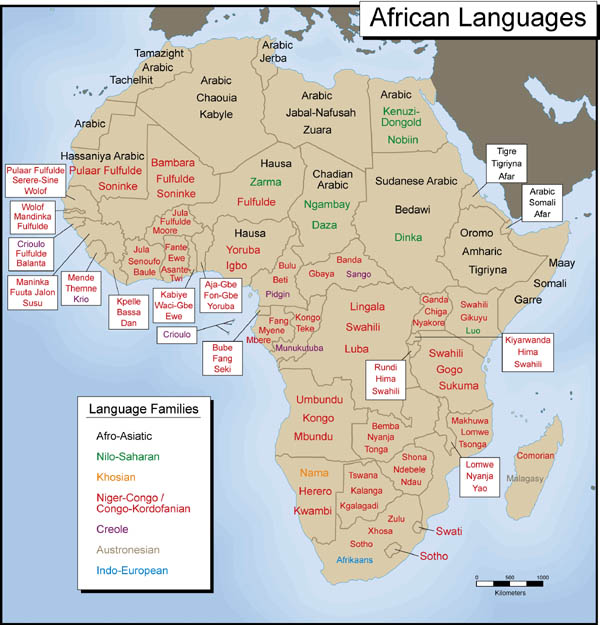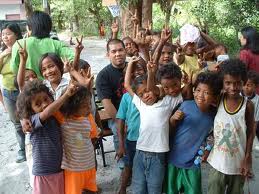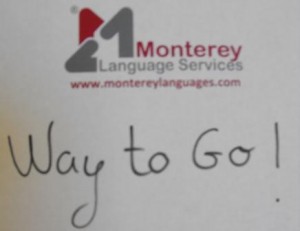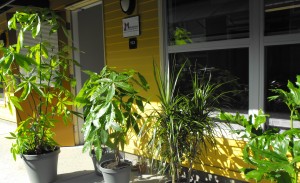
A study put on by the Common Sense Advisory found that more translation in Africa could improve economic development, human rights, and even save lives. The study titled “The Need for Translation in Africa” surveyed a total of 364 interpreters and translators for African languages in 49 countries. Combined, these people represented 269 different languages.
269 languages is a large amount, but that only accounts for a little more than 10% of the languages on the continent. Major languages are used by millions of people such as Amharic, Berber, Hausa, Igbo, Oromo, Swahili, and Yoruba, however, across the continent there are over 2000 languages. Problems occur because of the 2000 languages, only 63 are used in the judicial system and around 56 are used in public administration.
Some of the data from the study is as follows:
• 97.14% of respondents said greater access to translated information would help individuals in Africa understand their legal rights.
• 95.85% of respondents said greater access to translated information would help protect human rights in Africa.
• 94.92% of respondents said greater access to translated information would have a positive impact on the collective health of people in Africa.
• 94.87% of respondents said greater access to translated information would help Africans in times of emergency or natural disasters.
• 91.96% of respondents said greater access to translated information would help people in Africa contribute to the political process.
• 88.78% of respondents said greater access to translated information would help prevent international, civil, ethnic, or communal conflict in Africa.
• 63.07% of respondents said greater access to translated information could have prevented the loss of life of Africans in their family or circle of friends.
If you are interested in looking into some data collected here is a link to the study: http://www.commonsenseadvisory.com/Portals/0/downloads/Africa.pdf
Picture taken from: http://exploringafrica.matrix.msu.edu/students/curriculum/m8/map1.php
Source: http://kontax.com/Greater_Access_to_Translation_Could_Save_Lives_and_Protect_Human_Rights_in_Africa-341-en.html


 Look at an event such as the World Cup. The top 32 teams in the world are all gathered in one country, to play a sport that is adorned by hundreds of millions of people. There are obvious language barriers between the countries involved, and also the host country. Without
Look at an event such as the World Cup. The top 32 teams in the world are all gathered in one country, to play a sport that is adorned by hundreds of millions of people. There are obvious language barriers between the countries involved, and also the host country. Without  Facebook friends can now translate posts in different languages to their default language.
Facebook friends can now translate posts in different languages to their default language. Arnel Valencia is 39 and a village elder in Porac, Pamanga (in the Philippines) He says that during his time in his first-grade classroom his teacher would tell him, “Stop talking like a bird. You should use English or the national language.” The reason for this is because he chose to speak the language he used at home and in his village, which is just one of the Philippine’s 175 native languages.
Arnel Valencia is 39 and a village elder in Porac, Pamanga (in the Philippines) He says that during his time in his first-grade classroom his teacher would tell him, “Stop talking like a bird. You should use English or the national language.” The reason for this is because he chose to speak the language he used at home and in his village, which is just one of the Philippine’s 175 native languages. If you stop on a treadmill when it is running, you fall off. If you stop moving forward in life, there is no difference.
If you stop on a treadmill when it is running, you fall off. If you stop moving forward in life, there is no difference. Professional interpreters are extremely important in order to avoid misunderstandings on the job. Amateurs and machines often cannot get the job done correctly.
Professional interpreters are extremely important in order to avoid misunderstandings on the job. Amateurs and machines often cannot get the job done correctly. Interpreters provide the bridge for language barriers to be crossed.
Interpreters provide the bridge for language barriers to be crossed.
 Why is it important that a
Why is it important that a 
 A study done at two pediatric ERs, reported by the Chicago Tribune, found that when families have no access to a
A study done at two pediatric ERs, reported by the Chicago Tribune, found that when families have no access to a 

